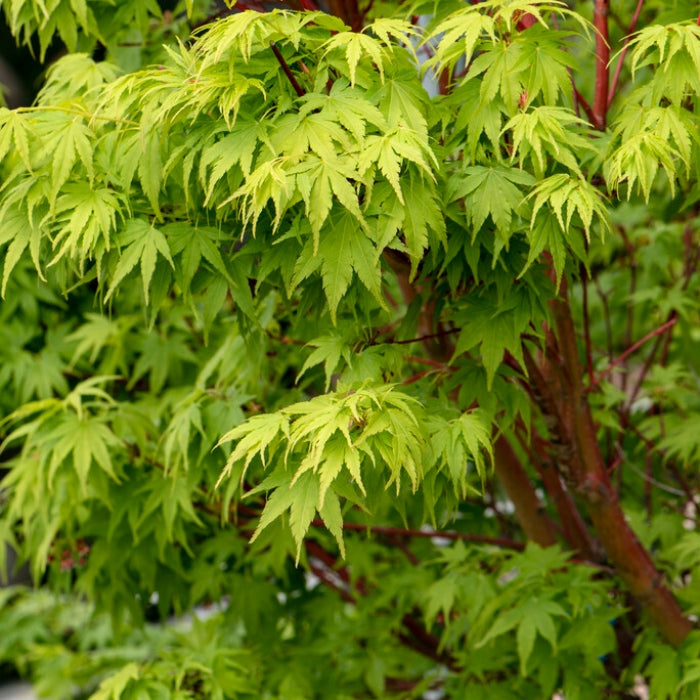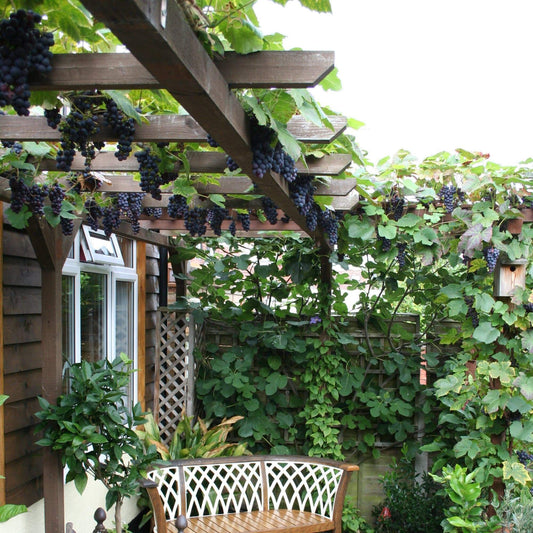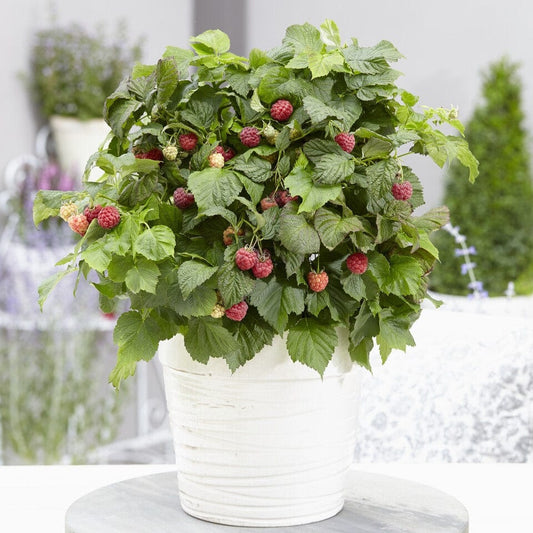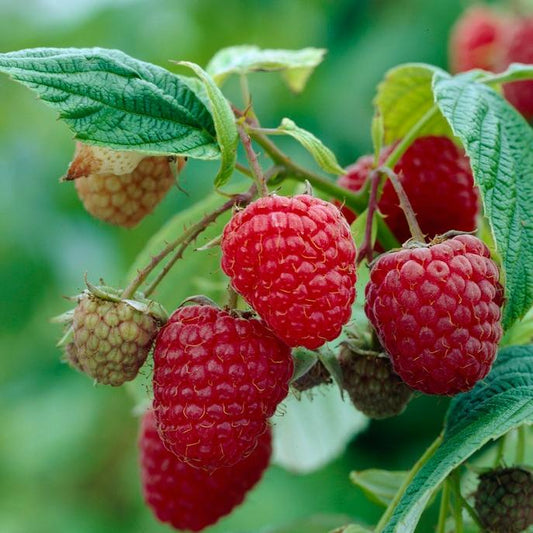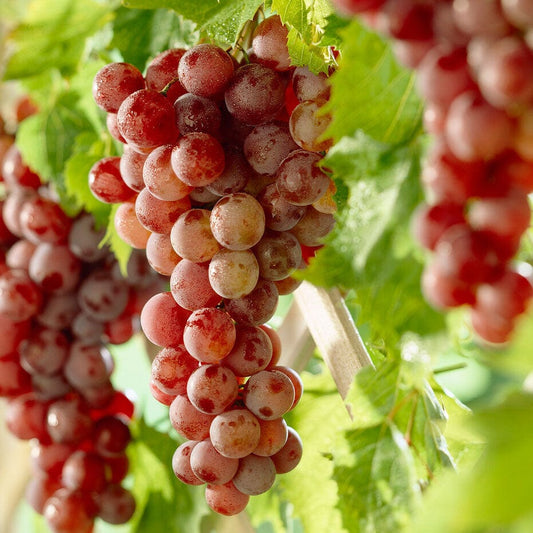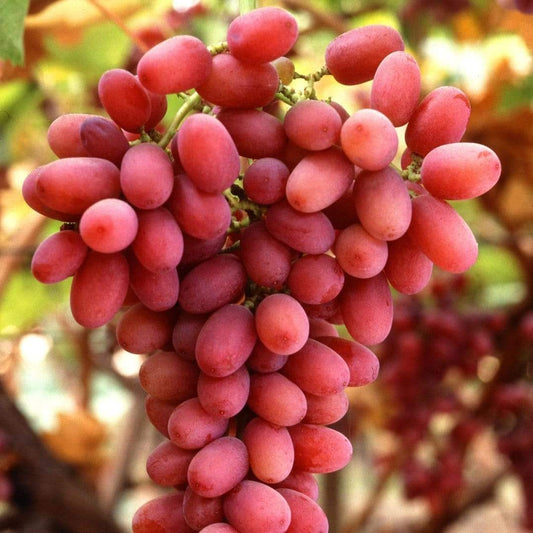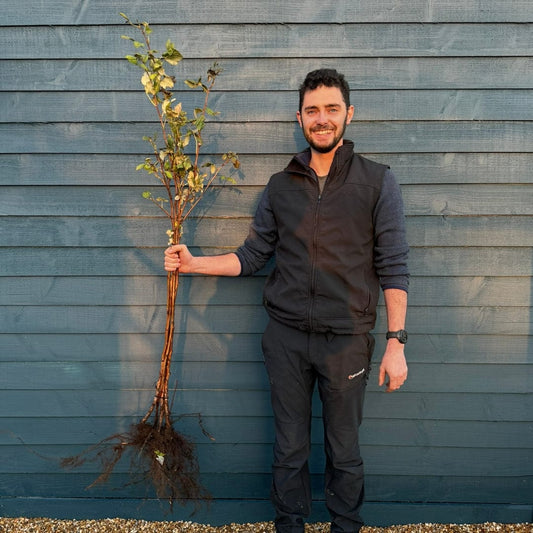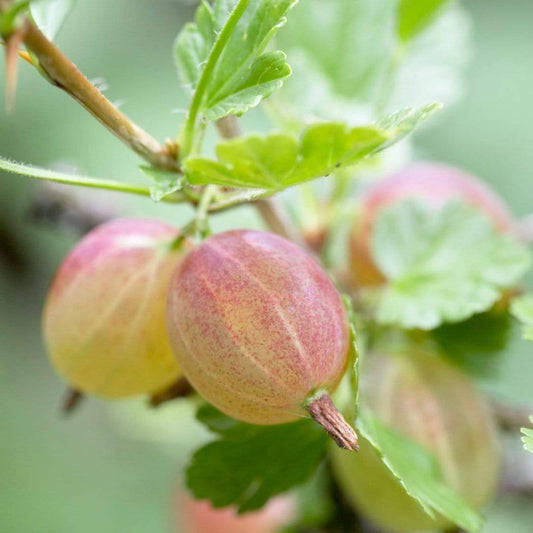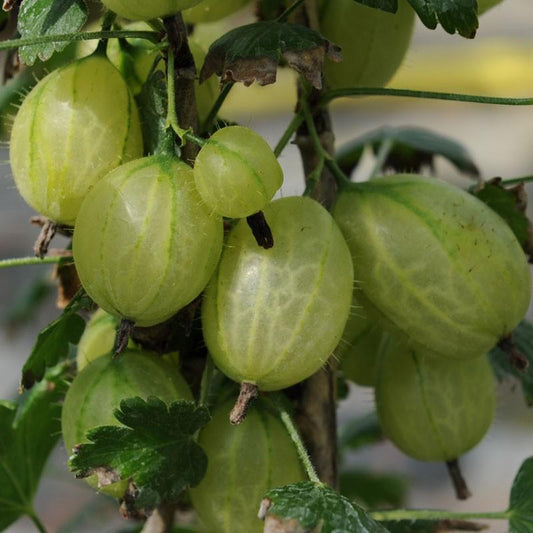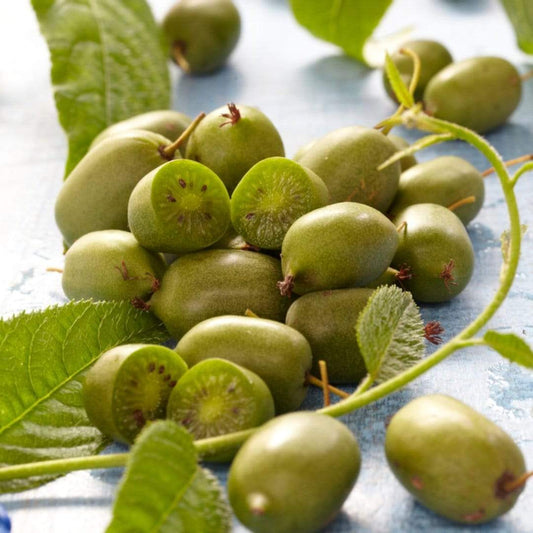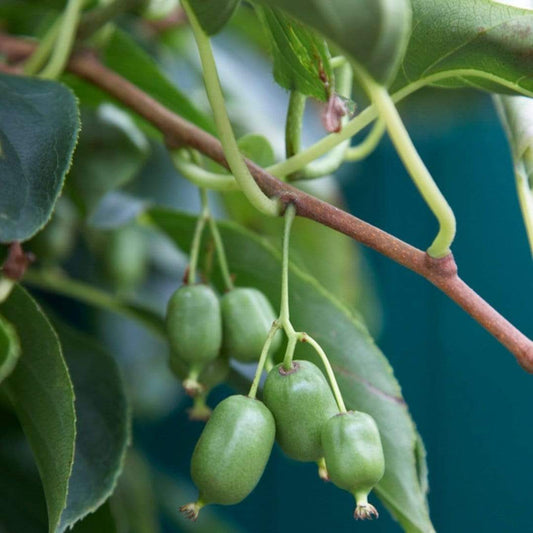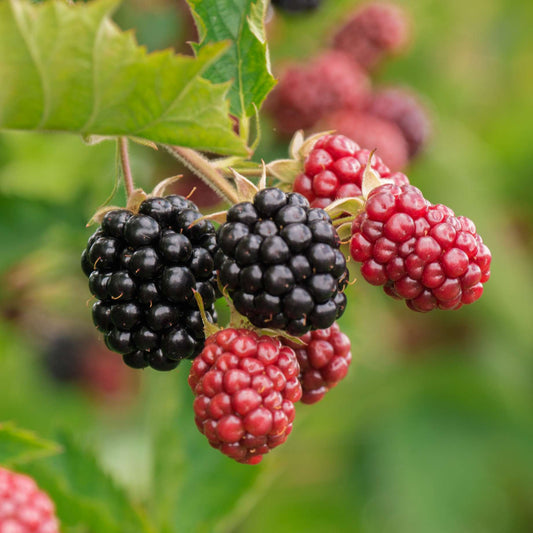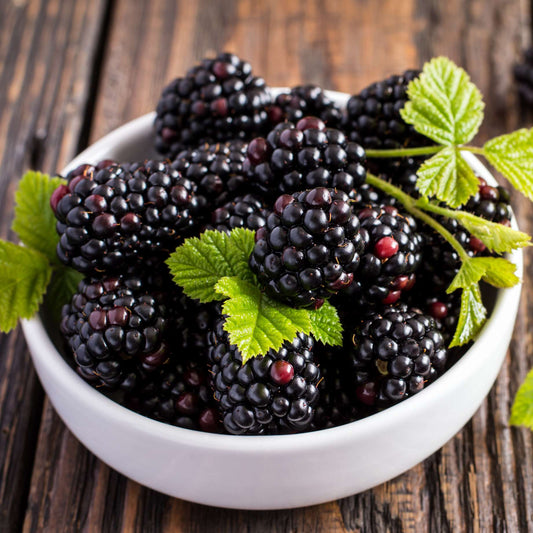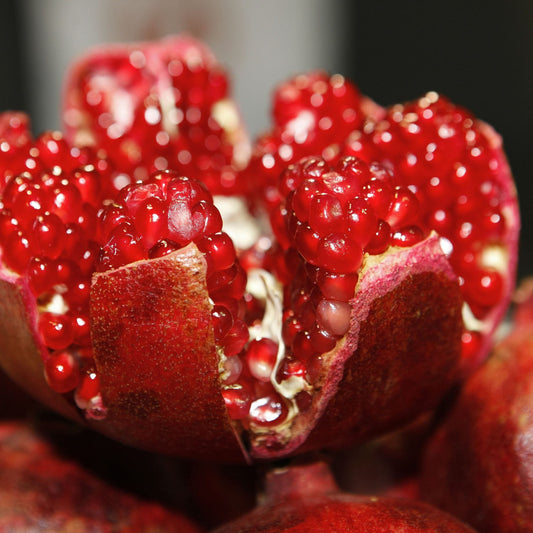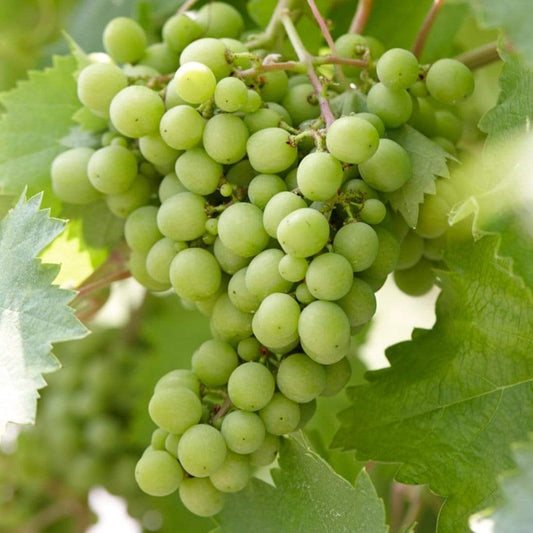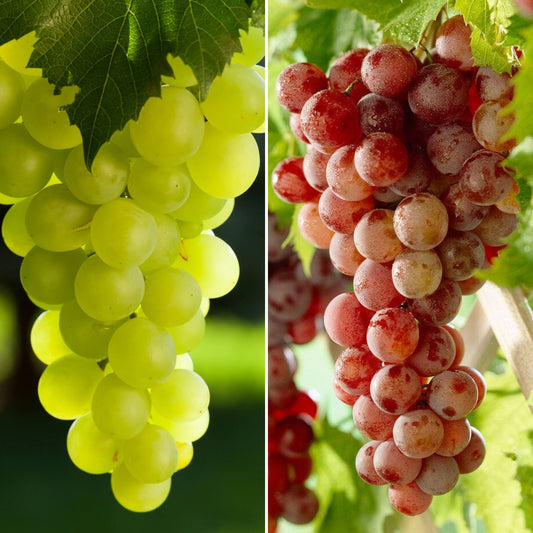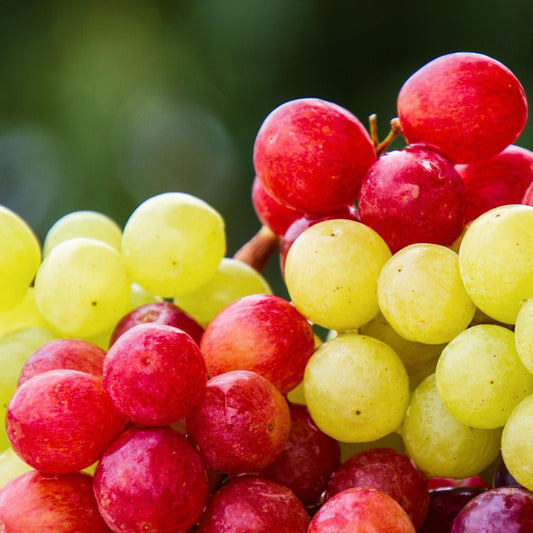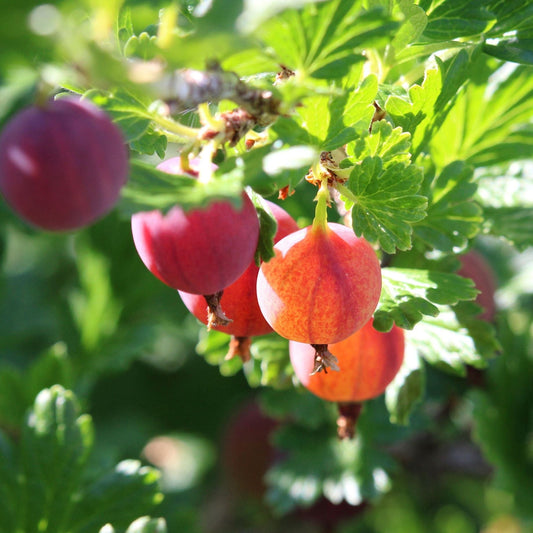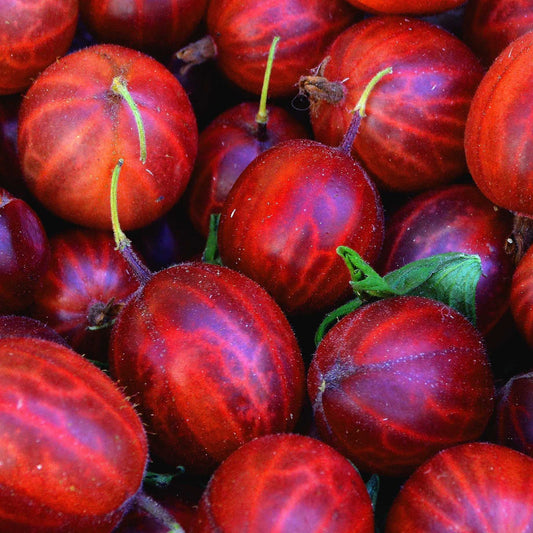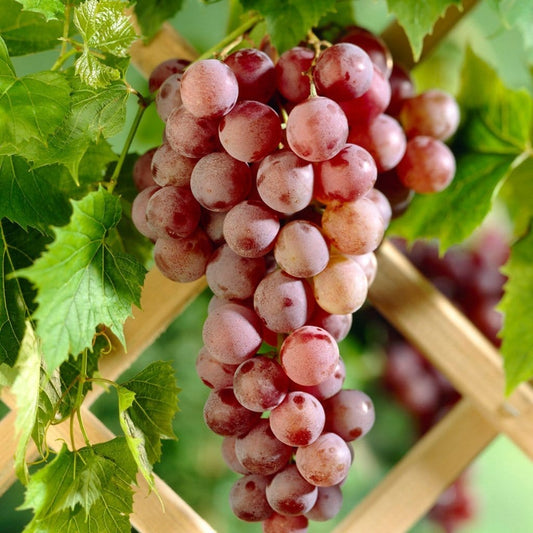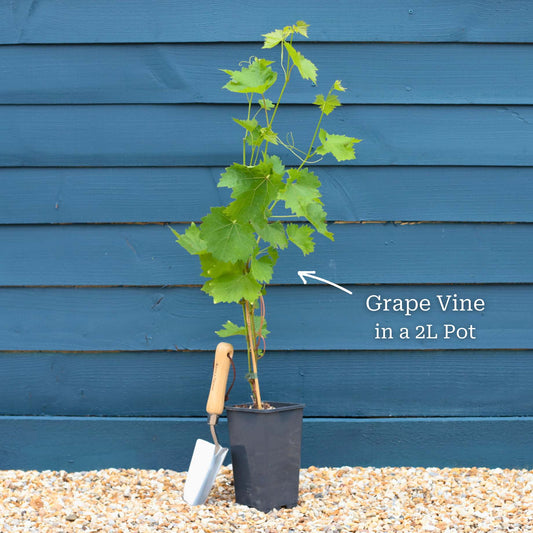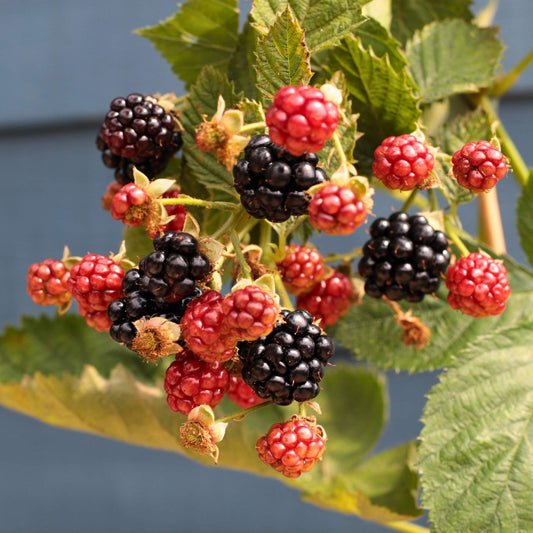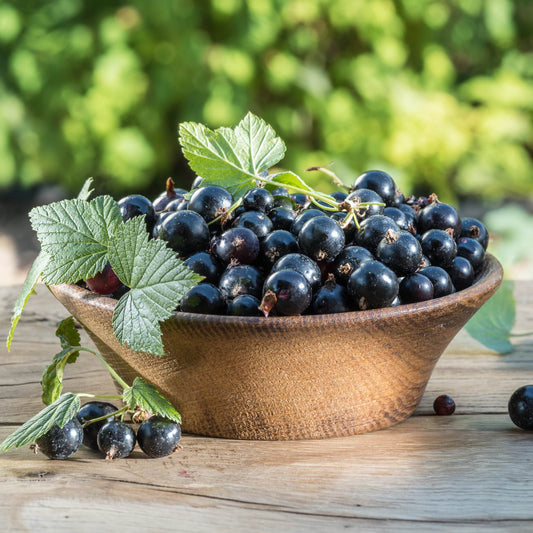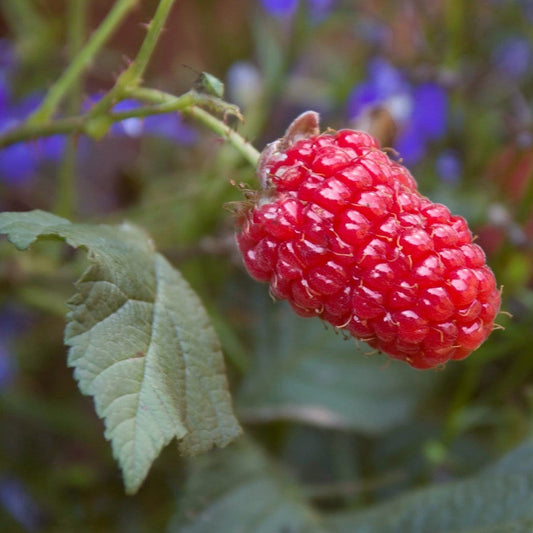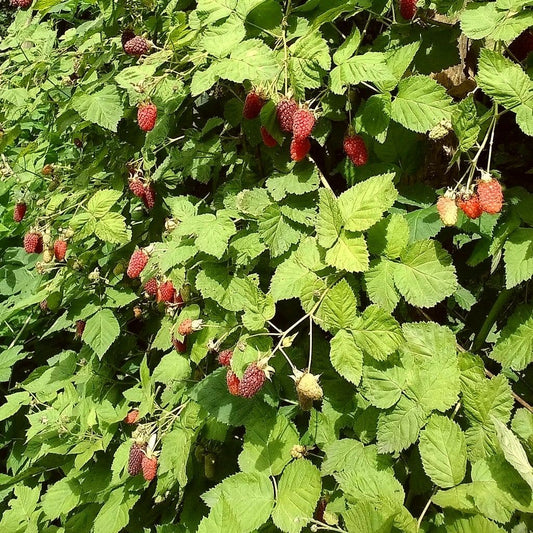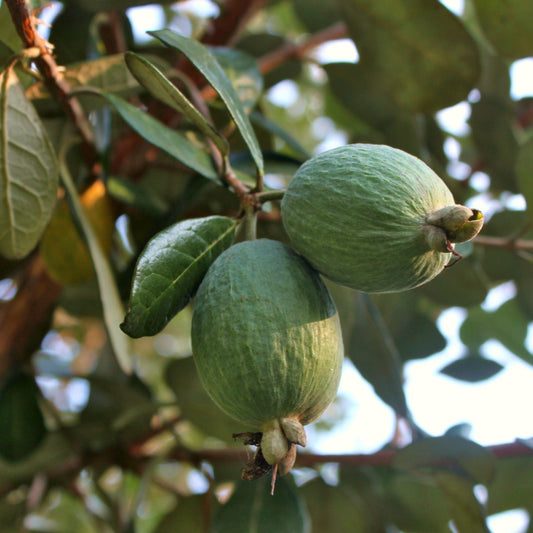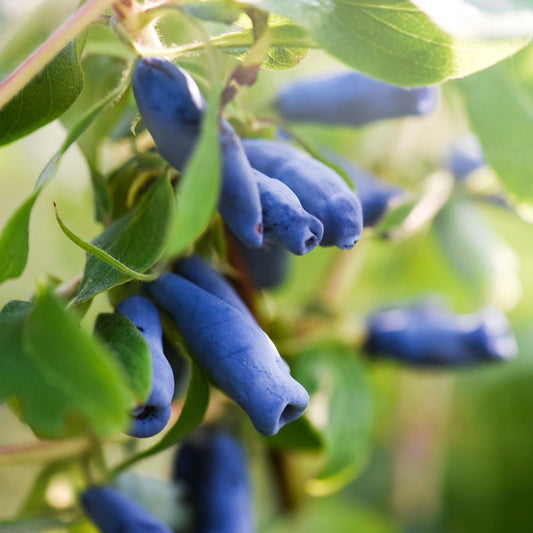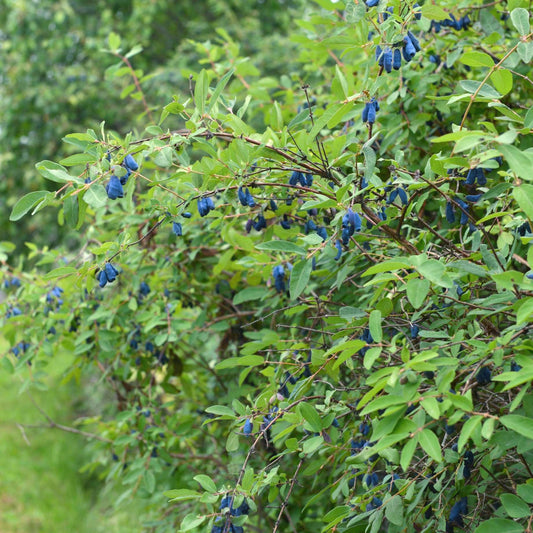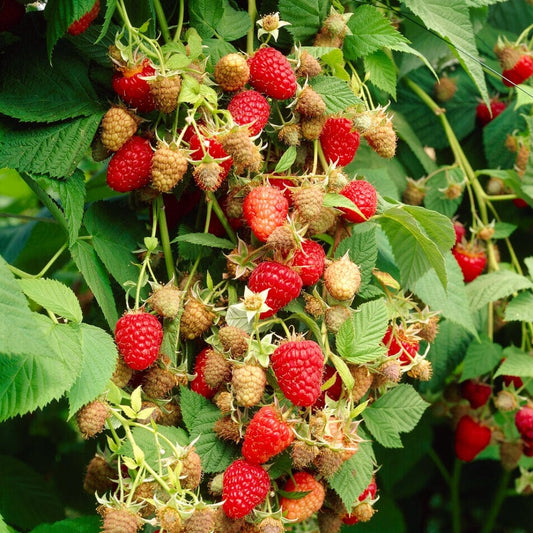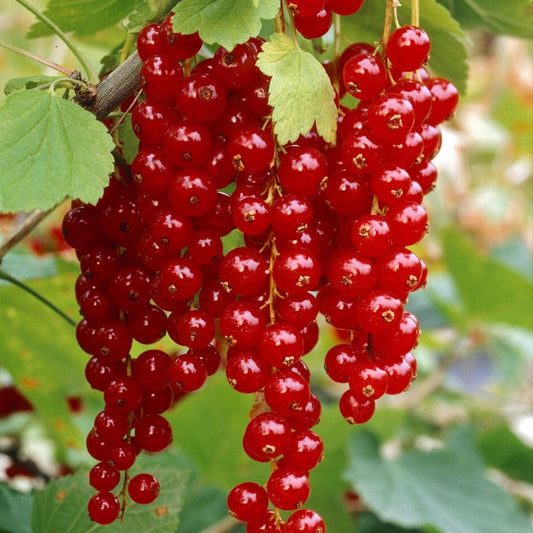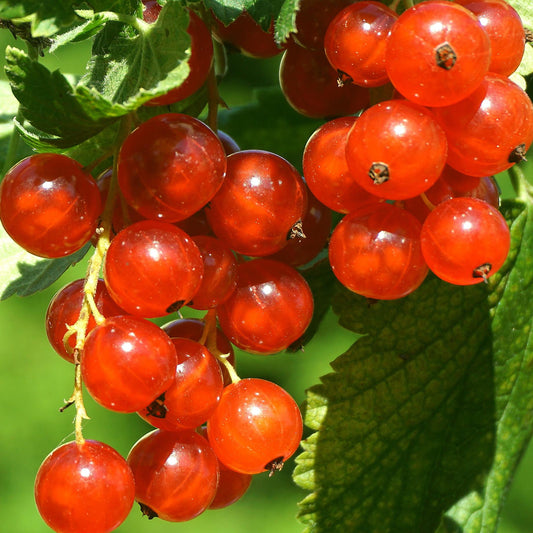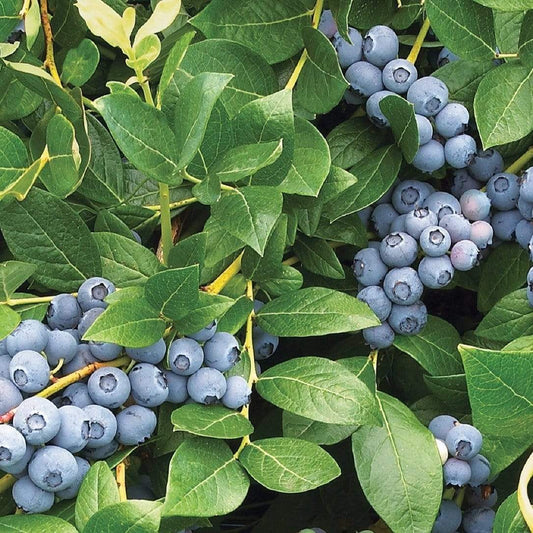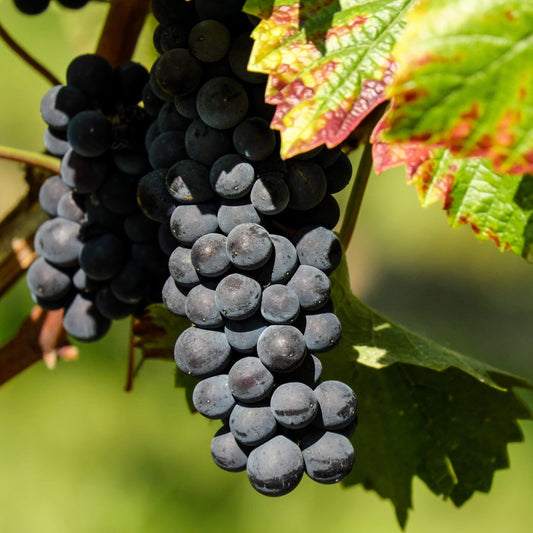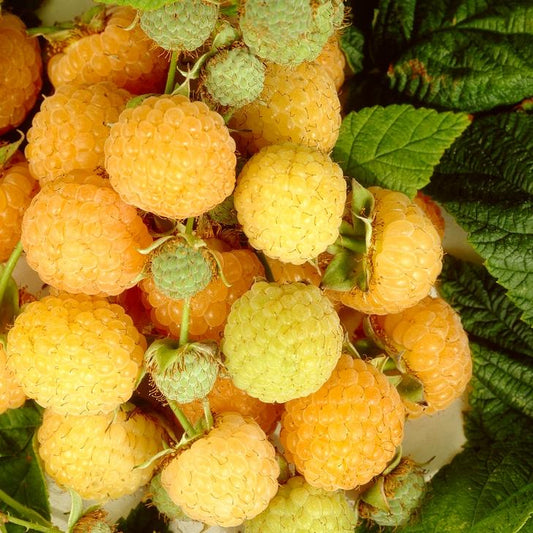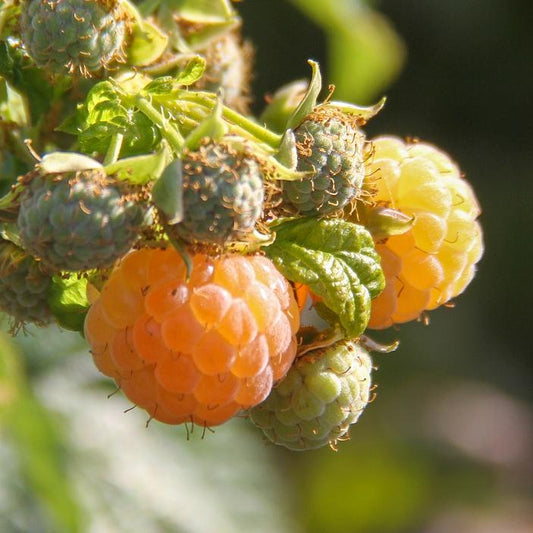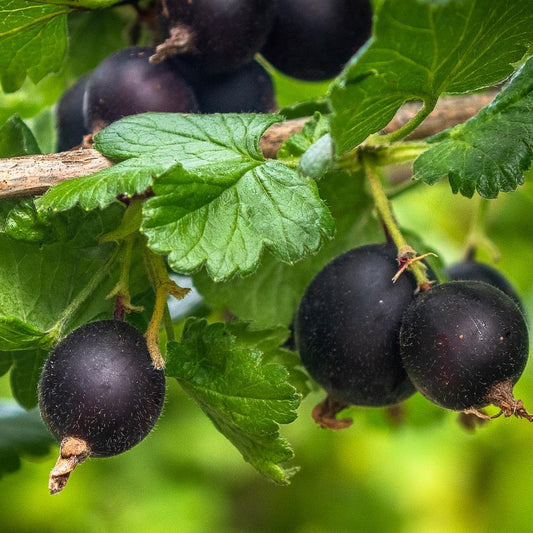Collection: Soft Fruit Bushes and Canes
Soft fruits aren’t just tasty, they’re also easy to grow! Our fruit bushes and canes have been lovingly grown here in the UK, ready to withstand whatever the UK weather throws at them. With our nursery offering each and every one of our fruit bushes an expert helping hand, your plants will be happy, healthy and sent to you ready to thrive in the garden.
Need help picking?
-
Regular price From £30Regular price Sale price From £30
'Bluecrop' Blueberry Bush
As reliable as gravity
- Dependable and balanced sweet-tart combo
- An incredibly reliable cropper
- Scatter over some freshly-made pancakes
- Pick from July to August
1 option available
-
Regular price From £30Regular price Sale price From £30
'Boskoop Glory' Seedless Outdoor Grape Vine
A deserved award winner
- Mouthwateringly juicy and flavourful
- RHS Award of Garden Merit winner
- Try a chicken, grape and za'atar salad
- Pick your grapes in August and September
3 options available
-
Regular price From £30Regular price Sale price From £30
'Yummy' Patio Raspberry Plant
Small but bloomin' mighty
- Juicy and sweet with subtly tart undertones
- Compact, thornless variety ideal for pots
- Pick from the bush and eat straight away!
- Harvest from July
2 options available
-
Regular price From £20Regular price Sale price From £20
'Pink Lemonade' Blueberry Bush
You won’t get this in the shops!
- Delightfully sweet and tangy
- Perfect for patio pots and raised beds
- Eat fresh or use to make muffins
- Harvest July to September
1 option available
-
Regular price From £25Regular price
£35Sale price From £25'Autumn Bliss' Raspberry Plants
Is this the taste of heaven?
- Excellent aromatic, extra-sweet flavour
- Very reliable, bumper harvests
- Why not give a raspberry swiss roll a go?
- Pick from August to October
2 options available
-
Regular price From £25Regular price Sale price From £25
'Crimson Seedless' Grape Vine
Well-suited to the UK climate
- Deliciously sweet and rich flavour
- Tolerates British weather conditions
- Great for making jams, jellies, juice or wine
- Pick in September
2 options available
-
Regular price From £21Regular price
£25Sale price From £21'Glen Ample' Raspberry Plants
Produces more-than-ample crops
- Incredibly rich and complex flavour
- RHS Award of Garden Merit winner
- Try out some raspberry shortbread bars
- Fruits from June to September
2 options available
-
Regular price From £12Regular price
£16Sale price From £12'Invicta' Gooseberry Bush
A bumper-cropping variety
- Wonderfully sweet and moreish
- Resistant to mildew
- Eat fresh or use in a gooseberry fool
- Harvest from late July (stores and freezes well)
4 options available
-
Regular price From £25Regular price Sale price From £25
'Issai' Hardy Kiwi Plant
Mini kiwi plant, maximum yields!
- Gooseberry-like sweetness with a lovely tang
- Self-fertile (no pollination partner needed)
- Eat fresh or make a kiwi pavlova
- Harvest from August
3 options available
-
Regular price From £9Regular price
£12Sale price From £9Thornless Blackberry Plant | Rubus fruticosus 'Waldo'
XL fruits delivering big flavour
- A rich juiciness that leaves you wanting more
- Thornless for scratch-free picking
- Makes a divine blackberry vodka liqueur
- Harvest your fruit from August to September
2 options available
-
Regular price From £16Regular price
£25Sale price From £16'Polka' Raspberry Plants
We're dotty about these berries!
- A crisp sweetness that dances on the palate
- RHS Award of Garden Merit winner
- Prepare a batch of raspberry flapjacks
- Fruits through from August to October
1 option available
-
Regular price From £25Regular price Sale price From £25
UK Hardy Pomegranate Bush
Hard as nails (and tasty, too!)
- Juicy and sweet with a slight crunch
- Tough enough to withstand the UK climate
- Eat fresh or use the fruit to make molasses!
- Harvest in September and October
2 options available
-
Regular price From £28Regular price Sale price From £28
'Superior Seedless' Outdoor Grape Vine
Among the finest dessert grapes
- Bursting with mouthwateringly good flavour
- Popular across the world
- Serve alongside your favourite cheeses
- Pick your grapes in September
2 options available
-
Regular price From £35Regular price
£41Sale price From £35Seedless Outdoor Grape Collection
No seeds stuck in your teeth...
- Decadently sweet and juicy grapes
- A selection of the best seedless varieties
- Use in jams, jellies and juices
- Harvest from August right through to October
1 option available
-
Regular price From £15Regular price Sale price From £15
'Hinnonmaki Red' Gooseberry Bush
The fantastic, Finnish fruit!
- Juicy, sweet and highly flavourful
- Vigorous and incredibly hardy
- Ideal for bottling and preserves
- Harvest from July to August
2 options available
-
Regular price From £28Regular price Sale price From £28
'Suffolk Red' Seedless Grape Vine
Eat straight from the vine!
- Crisp, juicy and even hints of spice
- Glorious foliage with stunning autumn colour
- Try a grape and cranberry focaccia
- Pick your grapes in September
2 options available
-
Regular price From £18Regular price Sale price From £18
'Loch Ness' Blackberry Plant
Berries to tempt Nessie out...
- Prized for its intense flavour
- RHS Award of Garden Merit winner
- Blackberry pie is the order of the day
- Pick from August to October
2 options available
-
Regular price From £11Regular price
£15Sale price From £11'Big Ben' Blackcurrant Bush
Huuuuuuuuge blackcurrants
- Big fruits that don't compromise on flavour
- Highly disease-resistant
- Give homemade blackcurrant vodka a go!
- Harvest from July to August
2 options available
-
Regular price From £8Regular price Sale price From £8
Thornless Loganberry Plant
A wonderful Californian hybrid
- Packed full of intense, complex flavours
- The aromatic flavour lends itself to jams
- Eat with fresh cream and some sugar
- Harvest your loganberries from July to August
5 options available
-
Regular price From £18Regular price
£20Sale price From £18Pineapple Guava Plant | Feijoa sellowiana
Exotic blooms here in the UK!
- Boasts brilliant zingy, perfumed flavour
- The most incredible tropical flowers
- Eat guavas whole or use for an unusual jam
- Harvest from October
2 options available
-
Regular price From £18Regular price Sale price From £18
'Kamtschatica' Honeyberry Bush
Fruits like heavenly nectar
- Blueberry-like taste with rich undertones
- Beautiful white flowers
- Use to make a sticky jam
- Harvest from June to July
2 options available
-
Regular price From £36Regular price
£40Sale price From £36Award-Winning Raspberry Canes | Growers' Choice
Three varieties loved by the RHS
- Exquisitely sweet and tangy raspberries
- Grow in borders or patio pots
- Eat fresh, served with cream and sugar
- Harvest fresh berries from early July to October
1 option available
-
Regular price From £11Regular price
£13Sale price From £11'Rovada' Redcurrant Bush
Mouthwateringly good currants
- Superb flavour, both sweet and sour
- RHS Award of Garden Merit winner
- Perfect for pies, tarts and jelly
- Pick your redcurrants from mid-July
1 option available
-
Regular price From £30Regular price Sale price From £30
'Duke' Blueberry Bush
One of the first to ripen
- A wonderfully delicate blueberry
- RHS Award of Garden Merit winner
- Prepare a sticky blueberry jam
- Ready to harvest in June and July
1 option available
-
Regular price From £28Regular price Sale price From £28
'Pinot Noir' Outdoor Grape Vine
An absolute classic for wine
- Wonderfully sweet and punchy flavour
- Hardy and fast-growing
- Rustle up a batch of grape muffins
- Harvest in August and September
2 options available
-
Regular price From £19Regular price Sale price From £19
'All Gold' Raspberry Plants
Enchanting golden raspberries
- Moreishly sweet and juicy
- RHS Award of Garden Merit winner
- Make a traditional Scottish cranachan
- Pick from August to October
3 options available
-
Regular price From £11Regular price
£15Sale price From £11Jostaberry Plant
One heck of a hybrid berry!
- Tastes like a sweeter blackcurrant
- Expect to see huge crops, up to seven kilos!
- Jams, fools and New York-style cheesecakes
- Pick from July to August
3 options available
Roots' Cotswolds Valley Nursery
Meet Mike
Fruit plants grown with love (and serious knowhow!)
Mike’s our guy when it comes to growing soft fruits. He’s our grape guru. Our gooseberry genius. Our blueberry boffin. What Mike doesn’t know about soft fruits? Well, it simply isn’t worth knowing. Having traversed the world from Australia to Northern Ireland – and even undertaking a horticultural stint in Sweden – Mike combines his enthusiasm, technical expertise, state-of-the-art facilities and favourable climatic conditions of the Cotswolds to grow only the very juiciest, sweetest soft fruits.
Need help picking?

Which soft fruit plants should I choose?
With so many different soft fruit plants out there, it can be difficult knowing which is right for you. Raspberry and blackberry plants (like ‘Polka’ and ‘Waldo’) are good picks for those gardens with more room to play with, while patio gardeners (or those with ericaceous flower beds) might be better off picking a blueberry cultivar (like ‘Sunshine Blue’) which is naturally quite bushy. Other options include tangy gooseberries (such as ‘Invicta’), jewel-like currants (like ‘Rovada’ redcurrant or ‘Big Ben’ blackcurrant) and unique hybrid berries (like the ‘Medana’ tayberry).

Tips for growing soft fruit bushes
There are some tips worth bearing in mind when it comes to growing soft fruit bushes. Soft fruit plants tend to prefer moist, well-drained soil with decent levels of fertility. Blueberries prefer acidic soil, making them excellent bedfellows for plants like rhododendrons and azaleas, while most other soft fruits can tolerate a fairly wide pH range. If you think your soil is poorly-draining or a bit infertile, then you can amend it with some well-rotted compost. This both enriches the soil and improves its drainage. Some plants, like raspberries, will do better when trained against a wire trellis, and your plants should be kept well-watered throughout the growing season.

How to use your homegrown soft fruits
The options are practically endless when it comes to using your harvested soft fruits (besides eating them fresh, of course!) Raspberries, for instance, make an excellent addition to pavlovas and trifles, while also reducing down into lovely jams, syrups and coulis. With blueberries, you can make some traditional American muffins, add them to healthy smoothies and on top of your morning porridge. With their distinctly tangy taste, gooseberries make excellent desserts (such as gooseberry fool) while currants can be used in juices, jams and jellies.
Soft fruit plants FAQs
Which soft fruit plants can be grown in the UK?
In short, lots! Soft fruit bushes that can be grown here in the UK include aggregate fruits like raspberries, blackberries and hybrid berries (such as loganberries, tayberries, wineberries and boysenberries). On top of that, there are the members of the Ribes genus, like gooseberries and currants, as well as blueberries, grapes and strawberries!
Which soft fruit plants are easiest to grow?
Fortunately, nearly all soft fruit plants are nice and easy to grow, but there are a couple we’d recommend as being particularly beginner-friendly or low-maintenance. Autumn-fruiting raspberries, for instance, are a little easier to grow than summer-fruiting raspberries, in that they’re typically smaller, less vigorous and have simpler pruning requirements. Strawberries are also straightforward to grow, and can also be grown in containers and hanging baskets. Blackcurrants would be our other pick; they require little by way of pruning, can generally tolerate a bit of shade and will reward you with big yields.
What conditions do soft fruit plants like?
Soft fruit bushes are normally pretty unfussy when it comes to their preferred conditions. Best fruiting tends to occur in a sunny, sheltered position, though some plants (like blackcurrants and blackberries) are also able to tolerate a bit of shade. Moist, well-drained soil is the order of the day; if your soil’s a bit on the heavy side with poor drainage, then amend with some perlite, horticultural grit or well-rotted compost. Blueberries are the only soft fruits that require something a little different: they need acidic (or ericaceous) soil. This makes them ideal for planting in raised beds or alongside other acid-loving plants like rhododendrons and azaleas.
What is the best soil for soft fruit plants?
You want a loamy soil, if possible, one that has good drainage but that retains some moisture. A good bit of fertility can be helpful, too, so digging in some compost can be beneficial. Check out our soil guide for more information on identifying what kind of soil you have. For blueberries, which like acidic soil, your best bet is to plant them separately in containers or a raised bed, but if you really want to plant them alongside your other non-ericaceous plants, then you can add pine needles, coffee grounds or an ammonium-based fertiliser.
When to feed soft fruit bushes?
You should feed your soft fruit bushes during early spring, before the growing season kicks off. A slow-release general-purpose fertiliser will work for most soft fruits. Once fertilised, you can also add a layer of mulch around the plant(s) to help retain moisture and suppress the growth of weeds.
When should you plant soft fruit bushes?
Potted soft fruit plants can be planted at any time of the year, provided that the ground isn’t frozen. If you purchase a bare root soft fruit plant, this will need to go into the ground during the plant’s dormant period (from November to March).
Happy plants make happy customers
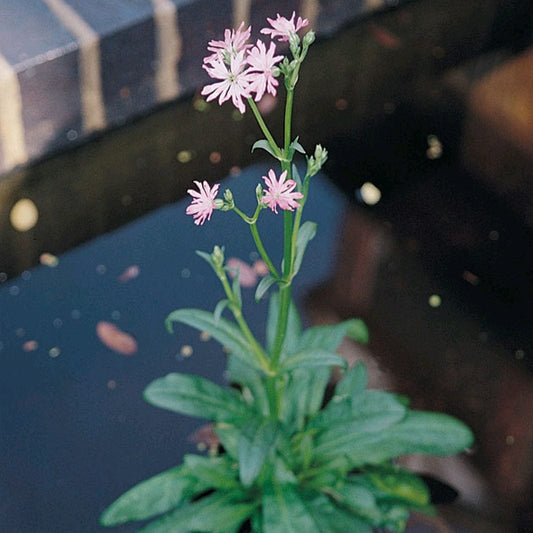
Plants arrived in great condition and very promptly. Well established - much better than the ones I got at my local garden centre.
Monica Spence
| 24 May
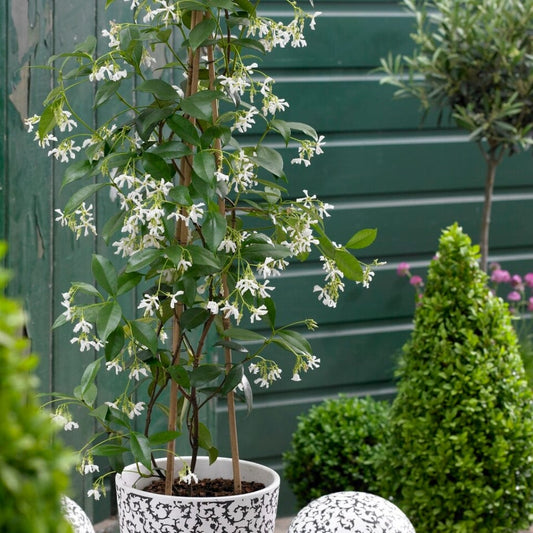
Yet again this company delivered good healthy plants, exactly as shown in photos, well packaged and within delivery time quoted. Recommend!
Jacqueline Burgess
| 2 Jun
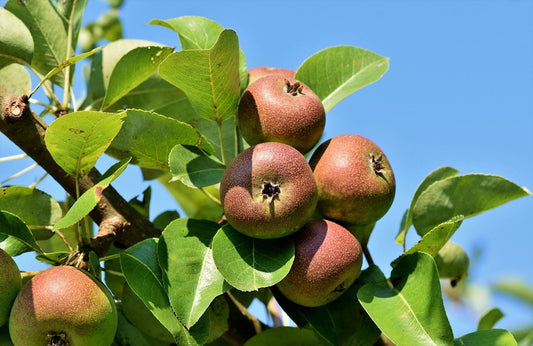
I continue to be so impressed with Roots. Their customer care, knowledge of their subject: from planting hedges to pruning roses and more, has been a great support.
Judy Lane
| 23 Oct
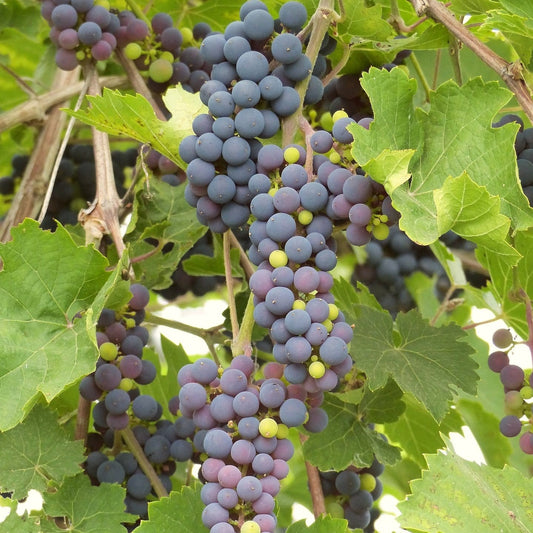
The plant arrived looking vigorously healthy, which brings a smile to your face, extremely well protected in its packaging.
Martyn Hill
| 5 Jul
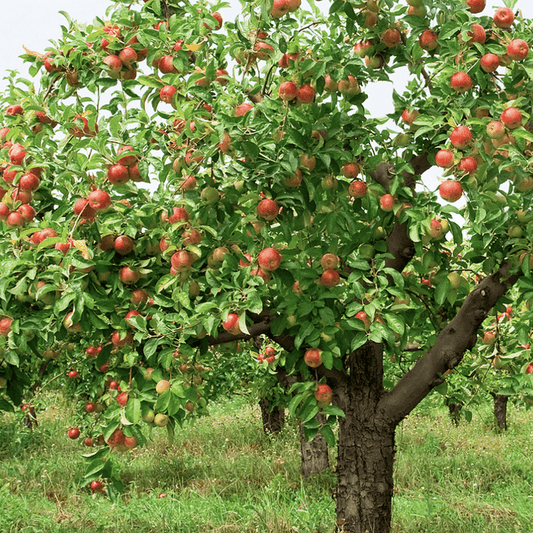
As a non-gardener, I found my whole experience brilliant. Great information & advice available on the website, great range of products & prices are brilliant.
John-Paul
| 22 May

Wonderful plants and great customer service... really surprised to find that the plants are better than those you would get at your local garden centre.
Gavin Wilcock
| 8 Nov
Fighting plastic waste
Delivering fresh from the nursery
Supporting UK growers
